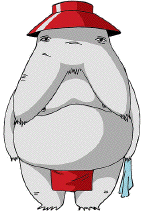
|
|||||||||||||||||||||||||||||||||||||||||||||||||||||
|
Of course Mike Arrington asked him the "Is RSS Dead?" question, and thankfully Costolo didn't want to go there. It would be ingracious of him, of course, because he made $100 million with RSS. He said RSS had been "pushed down" the stack, and it was now a protocol like SMTP or HTTP. In a way I agree with him, but only so far. RSS was never anything more than a protocol like SMTP or HTTP. So it hasn't gone anywhere. It's still exactly where it has been since 2002, it's part of the fabric of the Internet, and is the standard format for news distribution. We're lucky to have a standard format for that. But... Had Arrington asked me the question, I would have answered it differently. RSS will form the basis for the open distributed version of Twitter. The loosely-coupled 140-character message network. RSS already has everything we need, including a protocol for realtime updates. Further, any vendor of a Twitter client would, imho, be well-advised to spread out to achieve independence from the Twitter company. One way to do that, and they should all do it, is to support Facebook on an equal basis with Twitter. But that isn't enough. They should all make an investment in the open distributed way of doing what Twitter does. What that means is to offer the user the option to create a backup of their tweet stream in RSS, as a publicly-accessible feed. And once there's a base of apps doing that, they should add a feature to subscribe to those feeds. Key point: Once they're there, they can add core features without waiting for Twitter. Of course Arrington didn't ask me that question, and that's fine -- that's his prerogative. But there's nothing to stop me from answering it anyway! I had an interesting but somewhat disturbing exchange with a Google guy on Twitter today. It reveals a bunch of disconnects, that I'm going to try, in this post, to address. 1. Please take these statements at face value. 2. I am just a person, I am not in competition with Google. 3. I am a Google user. My primary email account is on GMail. I just bought a Droid, and started a Droid blog to help other people get started. I like it primarily because it connects so well with Google services. 4. I am a former Google shareholder. I made a shitload of money from my Google investment. Thank you. 5. I think Google is a big company. I think the people at Google, like most people everywhere, mean well. Like every big organization there are some who don't mean well. But I judge each individual as a person. I don't assume because a person works at Google that they are good or bad or otherwise. 6. I don't have the first clue what it's like to be inside Google, and honestly I don't care. 7. Now about PubSubHubBub. When I first looked at it I saw Atom all over it. I quickly hit the Back button. 8. There was a time when I seriously considered implementing it. But it required me to understand concepts I didn't understand and had no interest in investing in. It seemed to me that I would have to reimplement a lot of stuff I already had working. This is something big companies ask you to do a lot of. 9. One of the reasons I revitalized rssCloud was to influence Google to support RSS better in PSHB. 10. One of the clues that PSHB needs to be reconstructed is that it's so hard to describe. What's needed here is easy to explain: Instant updates for RSS. If you think RSS is a bad choice of terms, do some research. The world sees it that way. If you make that more general, you lose people. They get confused. PSHB is very very confusing to people. That hinders adoption. 11. Fostering adoption of complex technologies is something I know a lot about. I'm very good at it. You can ignore me if you want, but I usually am right about this stuff. 12. Switching gears, I like the Internet because it means I can ignore big companies and still create meaningful software. 13. I think Google doesn't like RSS. I see that in a lot of things Google does. 14. I wish Google would give up on fighting RSS. I think it's pointless. I don't think defeating or blunting or obviating RSS has anything to do with Google's business. 15. You can argue with me on any of these points, but remember #2. If you convince me I'm wrong (which is unlikely, btw, I'm no different than anyone else in that regard), you still have just convinced one person. 16. All this disclaimed, we have a common interest, I think. I don't want to pretend to speak for Google, so I don't want to try to say what that is. |
"The protoblogger." - NY Times.
"The father of modern-day content distribution." - PC World.
One of BusinessWeek's 25 Most Influential People on the Web. "Helped popularize blogging, podcasting and RSS." - Time.
"The father of blogging and RSS." - BBC.
"RSS was born in 1997 out of the confluence of Dave Winer's 'Really Simple Syndication' technology, used to push out blog updates, and Netscape's 'Rich Site Summary', which allowed users to create custom Netscape home pages with regularly updated data flows." - Tim O'Reilly.
My most recent trivia on Twitter. On This Day In: 2008 2007 2006 2005 2004 2003 2002 2001 2000 1999 1998 1997. |
||||||||||||||||||||||||||||||||||||||||||||||||||||
|
© Copyright 1997-2009 Dave Winer. Previous / Next |
|||||||||||||||||||||||||||||||||||||||||||||||||||||

